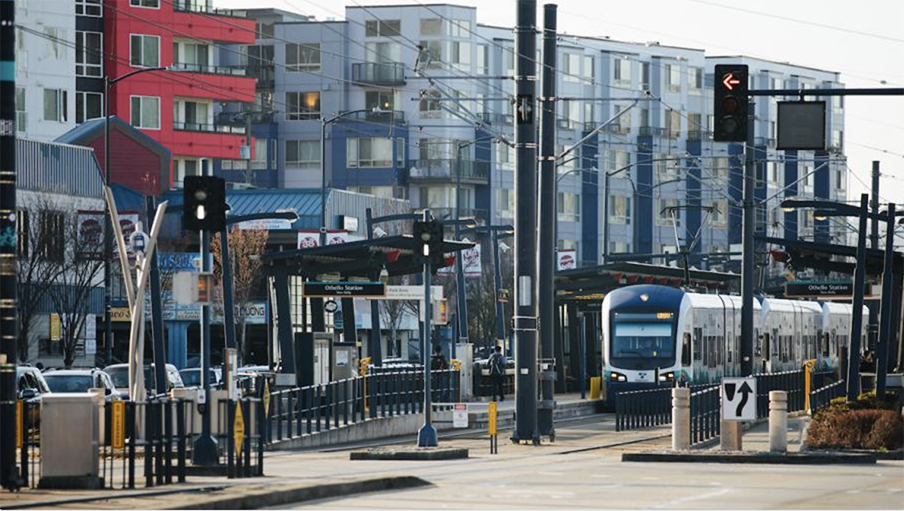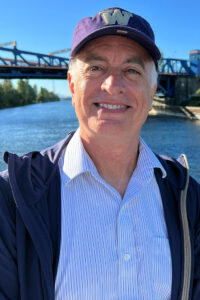
image courtesy Sound Transit
Issue
Transit-oriented development (TOD) can address both housing and transportation needs with dense, mixed-use vibrant neighborhoods that have travel options to reduce car dependency and related greenhouse gas emissions. During the 2023 legislative session, SB 5466 and HB 1517 intended to promote greater housing density adjacent to high-capacity mass transit, such as light rail and bus rapid transit stops, reduce parking requirements in cities and counties planning under the Growth Management Act (GMA), and categorical exclusions for infill development under the State Environmental Policy Act (SEPA). Although there was bi-partisan support, neither bill passed out of session.
Spark
Transit-oriented development can be complex in nature, with various government agencies involved along with the private sector developers who are needed to successfully finance and build housing for a mix of income types. There have been some efforts through regional transportation projects, but there is not a statewide policy that can help promote the development at the scale needed to address the housing supply shortfall with 1.1 million homes needed in the next 20 years.
Overview
This project will identify the key elements that would make a state-level transit-oriented development policy successful.
Key tasks include:
- Review existing TOD policies in Washington state and in the United States.
- Interview legislative staff, and those who have developed TOD policy to understand the issues and challenges for legislation.
- Interview experts with experience in TOD policies and implementation.
- Identify key elements and case studies of successful and unsuccessful TOD developments.
- Provide guidelines and consideration for TOD policy that achieves development goals.
- Provide best practices related to equity consideration that reduces potential displacements.
Innovation
Providing new insights into successful transit-oriented development policy at the state level can promote land-use decisions that help address community needs for housing for various income levels, improve access to transportation choices that reduce car-dependency, vehicle miles travelers, greenhouse gas emissions, and promote vibrant, livable communities.
Impact
This report, “Finding Common Ground” provides data-driven research findings to help with state level policy making decisions.
Team
This work is supported by Challenge Seattle.
Academic Department
Faculty Leadership
Contributors
- Mason Virant, Associate Director, Washington Center for Real Estate Research
- Arthur Acolin, Associate Professor, Runstad Department of Real Estate
